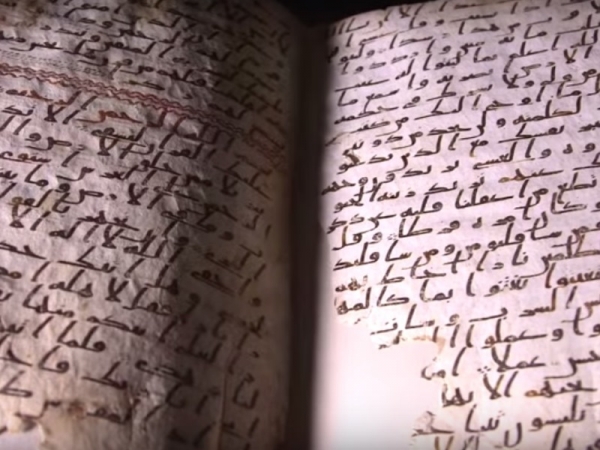MI weekly selection #145
MI weekly selection #145

Carbon dating suggests Quran fragments could be older than once thought
Fragments of what’s believed to be the world’s oldest Quran may be older than previously thought, even possibly predating the prophet Muhammad, according to researchers at Oxford University. The text was initially tested by Birmingham University, which used radiocarbon dating to suggest the fragments were about 1,370 years old. But new carbon dating tests at Oxford put the age between 1,448 and 1,371 years old, which could date it to Muhammad’s childhood or even before he was born.
Ancient marine dolphin fossils may be link to modern river-dwelling cousins
The remains of an ancient dolphin that lived about 6 million years ago have been found along the Panama coast and may be a link to modern river dolphins. Isthminia panamensis is a species that most likely lived in the ocean, researchers say.
Droplets of primordial matter created in particle collider experiment
The Relativistic Heavy Ion Collider in New York has produced small droplets of primordial matter known as quark-gluon plasma, according to researchers. The droplets have been produced before, but this experiment suggested the matter can be made with lower energies.
Robot sent into Great Barrier Reef to eradicate destructive starfish
Crown-of-thorns starfish are wreaking havoc on the coral of the Great Barrier Reef in Australia, so scientists are sending in a robot to take out the marauding creatures. The COTSbot, developed by researchers at Queensland University of Technology, is expected to go to areas of the reef that are more difficult for human divers to reach in search of the starfish.
Ancient Egyptians may have bred raptors
The mummified remains of a European kestrel are giving researchers clues about the handling of raptors by ancient Egyptians, who may have bred the birds of prey. With 3D scanning, scientists discovered that the mummified bird had been force fed, suggesting a breeding program.